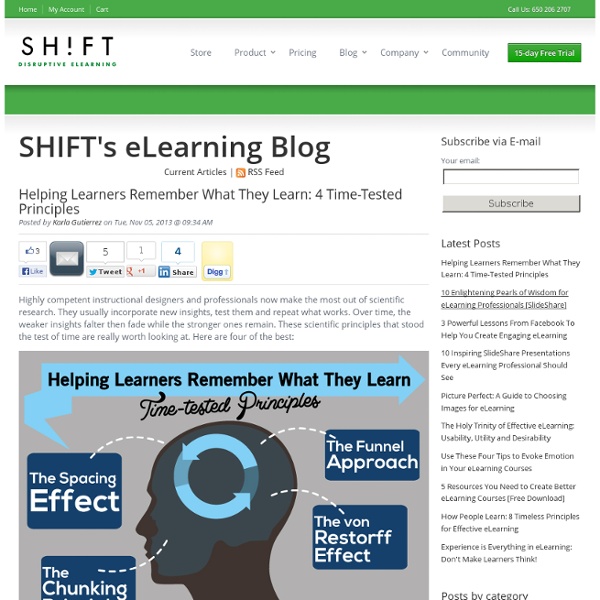The Role Of Student Choice In Connected Classrooms
There have been some questions that have been bugging me (again) recently. What is the relevance of the skills and content we teach; and who has decided that we, as teachers, know best?Who decided that we can’t trust the choice and direction of young people?Why is it OK to impose boring, unengaging lessons for the sake of a student’s “TBD future?” How many schools and how many classrooms allow student choice? And, in adult-centered spaces, how often do young people have the opportunity to make important decisions? iPads Bring Choice iPads have shocked the school system and provided us with a chance to reexamine student choice. Consider…. In “real life,” students often have a voice expressed through social media, peer groups, sports team, etc. How Do We Reinvent? When you ask people to design a solution for a current problem, they speak and imagine from what they know.
Country briefings: news and analysis by country
A-Glimpse-into-the-Future-of-Learning-Infographic_0.pdf
Teach yourself to program
We are entering the summer, the perfect time to improve yourself, you could go running or swimming, you could learn a new foreign language or perhaps you could learn to program. Self-learning is not as hard as it sounds, and it’s much easier than self-learning Spanish or French. There are really wonderful sources to start learning these new languages, understanding the concept behind programming and giving it a try with some interesting problems. Basic Programming Via XKCD To learn a new programming language, it’s much easier if you already know the concepts because you can start learning the new structures in no time. Programming Concepts : This is a brief tutorial for new programmers from the City University of New York. Learning a Language Whether you already know some programming languages or you are moving forward, you should choose a language to work with. Learning HTML Via Cyanide and Happiness HTML is quite a simple language that doesn't use variables or operations. Learning Python
How to Focus Attention in Adult Learning and E-learning
Studies show that focus is a key attribute for performance improvement and success in life. Yet today’s modern workplace is full of distractions, from text to tweets. Check out these effective techniques for increasing focus for adult learners participating in e-learning, classroom training, and other learning events. Daniel Goleman, psychologist and author of the bestseller Emotional Intelligence, has just written a book called Focus: The Hidden Driver of Excellence. How can you help learners focus in a workplace dominated by email, IM, texts, and tweets? 5 Effective Techniques for Improving Focus and Attention in Adult Learning and E-learning Keep learning shortReality is, you may only be able to get 15 minutes of someone's focused attention, particularly for e-learning. Are you still with me? Interested in learning more about nano-learning, and how short e-learning can be part of a mobile learning strategy?
31 How to Sites Must Check
Home » How to » 31 Best How To Sites To Learn Everything You Need To Know In Internet you can find lots of site which helps you to learn lots of thing that we use in our daily life. But the question is where to find it and and how to learn lots of thing and guides free. These are some of the best How to websites which will really help you a lot. How To Sites To Learn New Skills 1. CNET Online Courses Free online how to classes and tutorials on everything from car technology to digital photography or Tips and tricks. 2. eHow eHow One of the most popular website on the web lots of How to Articles. eHow is a treasure trove of how to information, anything from arts and entertainment to sports and fitness. 3. wikiHow WikiHow wikiHow is a powerful and great how to manual, but since it’s a wiki, anyone can add or edit the information you find here. 4. Instructables Share what you like to make and how others can do the same at Instructables, a community driven how to site. 5. How Stuff Works
25 Critical Thinking Strategies For The Modern Learner
Critical thinking is the engine of learning. Within this complex process or so many other relevant themes that contribute to learning: creativity, analysis, evaluation, innovation, application, and scores of other verbs from various learning taxonomies. So the following infographic from Mentoring Minds is immediately relevant to all educators, and students as well. It’s a bit of a mash of Habits of Mind, various 21st century learning frameworks, and the aforementioned learning taxonomies, promoting collaboration, problem-solving, and real-world connections (standard “critical thinking fare” with Habits of Mind-sounding phrases such as “Open-Mindedness”). At the bottom, it pushes a bit further, however, offering 25 critical thinking strategies to help support progressive learning.
21 Brilliant Productivity Tools Every College Student Must Use | Get Degrees
If you ask a college student about productivity, he won't have much to say. And you really can't blame him. He leads a dynamic life where academics and fun go hand in hand, with the latter becoming a more important activity most of the times. However, with the advent of internet and web 2.0, a college student now has access to so many amazing tools that he could finish up his work as well as enjoy life to the fullest without the guilt. The following list mentions 21 such tools which could skyrocket the productivity of college students when it comes to doing research, communicating with fellow students and dealing with assignments. Research and Taking Notes 1.Questia Questia is an excellent online research tool which features a huge web based library of magazines, books, journals, papers, articles and much more. Although you need to pay about $19.95 per month for its membership, you could save on books and magazines you buy if you subscribe to it. 2.Free Book Notes 3.Wikipedia 4.Notely 7.



